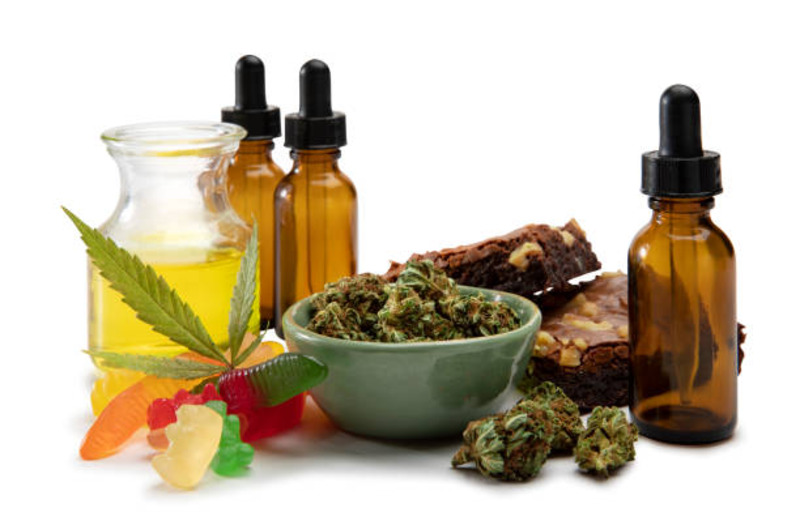Malaria is a devastating disease that affects millions of people worldwide. It can leave patients weak, fatigued and struggling to regain their strength after treatment. Fortunately, there are certain foods that can help speed up the recovery process and restore vitality to those who have battled this illness. In this post, we’ll be discussing the top five foods recommended for malaria patients – so if you’re looking to give your body a much-needed boost, keep reading!
Introduction: What is Malaria?
Malaria is a disease that is caused by a parasite that is transmitted through the bite of an infected mosquito. The disease can be fatal if not treated properly. Malaria is a leading cause of death in many parts of the world, particularly in Africa.
There are four types of malaria: Plasmodium falciparum, Plasmodium vivax, Plasmodium ovale, and Plasmodium malariae. P. falciparum is the most common and most dangerous type of malaria. It is responsible for the majority of malaria cases and deaths worldwide.
Symptoms of malaria include fever, chills, sweats, headaches, muscle aches, and nausea. If not treated promptly, malaria can lead to serious complications and death.
Malaria can be prevented by avoiding mosquito bites and by taking antimalarial medications. There is no vaccine available for preventing malaria.
Benefits of Eating Healthy During Recovery
When you’re recovering from malaria, it’s important to eat healthy foods that will help your body heal and repair itself. Here are five of the best foods to eat during recovery:
1. Protein-rich foods: Protein is essential for healing and rebuilding damaged tissue. Eat plenty of lean meats, fish, eggs, beans, and nuts during recovery.
2. Vitamin C-rich foods: Vitamin C helps boost immunity and fight infection. Eat plenty of citrus fruits, tomatoes, bell peppers, broccoli, and kale during recovery.
3. Iron-rich foods: Iron is essential for making new blood cells and carrying oxygen to cells throughout the body. Eat plenty of dark leafy greens, legumes, iron-fortified cereals, and red meat during recovery.
4. Zinc-rich foods: Zinc plays a role in wound healing and immune function. Eat plenty of oysters, crab, lobster, beef, pork chops, pumpkin seeds, and chickpeas during recovery.
5. Foods high in antioxidants: Antioxidants help protect cells from damage caused by free radicals. Eat plenty of berries, dark chocolate, green tea, artichokes, kidney beans, and pecans during recovery
Top Five Foods Recommended For Malaria Patients
When it comes to boosting your recovery from malaria, what you eat is just as important as the medication you take. While there is no one-size-fits-all diet for malaria patients, there are certain foods that can help speed up your recovery and promote healing. Here are the top five foods recommended for malaria patients:
1. Fresh fruits and vegetables: Filled with essential vitamins, minerals, and antioxidants, fresh fruits and vegetables should be a staple of any malarial patient’s diet. They can help boost your immune system, fight off infection, and speed up healing.
2. Lean protein: Protein is an essential nutrient for tissue repair and growth. It can also help increase your energy levels and reduce fatigue. Choose lean sources of protein such as chicken, fish, tofu, or legumes.
3. Whole grains: Whole grains are a good source of complex carbohydrates which can help improve your energy levels and stamina. They’re also rich in vitamins, minerals, and fiber which can support a healthy digestive system.
4. Herbal teas: Herbal teas can be a great way to stay hydrated while also getting some additional nutrients into your system. Certain herbs have properties that can help boost immunity, fight infection, and promote relaxation.
5. Probiotics: Probiotics are live microorganisms that have health benefits when consumed. They can help improve digestive health by restoring the balance of good bacteria in the gut
– Fruits and Vegetables

When it comes to boosting your recovery from malaria, fruits and vegetables are some of the best foods you can eat. Here are five specific fruits and vegetables that are recommended for patients recovering from malaria:
1. Papaya: Papaya is a tropical fruit that is rich in vitamins A and C, both of which are important for boosting immunity. Additionally, papaya contains proteolytic enzymes that can help break down protein deposits in the body, making it easier for your body to heal.
2. Carrots: Carrots are packed with beta-carotene, an antioxidant that helps promote cell growth and repair. Carrots also contain vitamin A, which is essential for a healthy immune system.
3. Spinach: Spinach is a nutrient-rich leafy green vegetable that contains vitamins A, C, and E, all of which are important for boosting immunity and helping the body recover from illness. Additionally, spinach is a good source of iron, which is necessary for red blood cell production and oxygen transport throughout the body.
4. Sweet potatoes: Sweet potatoes are another excellent source of beta-carotene as well as vitamins C and B6. Sweet potatoes also contain potassium, which is important for maintaining fluid balance in the body and keeping muscles functioning properly.
5. Tomatoes: Tomatoes are rich in lycopene, an antioxidant that has been shown to have numerous health benefits including reducing inflammation and promoting heart health. Tomatoes
– Lean Protein Sources
When it comes to boosting your recovery from malaria, lean protein sources are an important part of the equation. Protein helps to repair and rebuild damaged tissue, and it also provides the body with the energy it needs to heal.
There are a variety of lean protein sources that can be beneficial for those recovering from malaria, including:
– Eggs: A great source of complete protein, eggs provide all the essential amino acids the body needs to repair and rebuild. They’re also easy to digest and packed with nutrients like vitamin D, selenium, and choline.
– Fish: Fish is a lean protein source that’s high in omega-3 fatty acids, which are known for their anti-inflammatory properties. Salmon, tuna, trout, and sardines are all good options.
– Chicken: Another lean protein option, chicken is a good source of niacin and vitamin B6, both of which are important for energy production. It’s also low in saturated fat and calories.
– Beans: A versatile and affordable protein source, beans are high in fiber and antioxidants. They can be used in a variety of dishes or simply enjoyed on their own.
– Greek yogurt: An excellent source of protein, calcium, and probiotics, Greek yogurt can help promote gut health and aid in digestion.
– Whole Grains
Whole grains are an important part of a healthy diet, and they can be especially helpful for people recovering from malaria. Whole grains are packed with nutrients that can help boost recovery, including fiber, protein, vitamins, and minerals. They can also help to regulate blood sugar levels and provide energy. Some great whole grain options for people recovering from malaria include oats, quinoa, brown rice, and barley.
– Nuts and Seeds
Nuts and seeds are a great source of nutrients for malaria patients. They are packed with protein, fiber, and healthy fats that can help to boost recovery. Here are some of the best nuts and seeds to eat for malaria patients:
– Almonds: Almonds are a good source of vitamin E, which is an important antioxidant for the body. They also contain magnesium, which can help to reduce inflammation.
– Brazil nuts: Brazil nuts are an excellent source of selenium, which is a mineral that helps to boost the immune system. They also contain copper, another nutrient that is important for immunity.
– Walnuts: Walnuts contain omega-3 fatty acids, which are known for their anti-inflammatory properties. They also contain magnesium and copper.
– Pumpkin seeds: Pumpkin seeds are a good source of zinc, a mineral that is essential for immune function. They also contain iron, which is important for energy levels.
– Sunflower seeds: Sunflower seeds contain vitamins A and E, both of which are important antioxidants. They also contain selenium and copper.
– Herbal Teas
There are many different herbal teas that can be helpful for malaria patients. Some of the most popular and effective ones include:
– Ginger Tea: helps to soothe the stomach and improve digestion
– Chamomile Tea: has calming and relaxing effects, which can be helpful for those dealing with anxiety or stress
– Peppermint Tea: can help to relieve nausea and vomiting
– Green Tea: full of antioxidants, which can help boost the immune system
– Lemon Balm Tea: known for its antiviral properties, which may help to fight off the infection
Conclusion
Malaria can be a serious illness, but if you follow the advice of your doctor and eat a nutritious diet rich in fruits, vegetables, proteins and other essential vitamins and minerals, you can help to speed up your recovery. Eating these five foods recommended for malaria patients will give your body the nourishment it needs to heal quickly and efficiently. With proper nutrition as part of an overall treatment plan, anyone with malaria should see positive results in their recovery process in no time at all.












